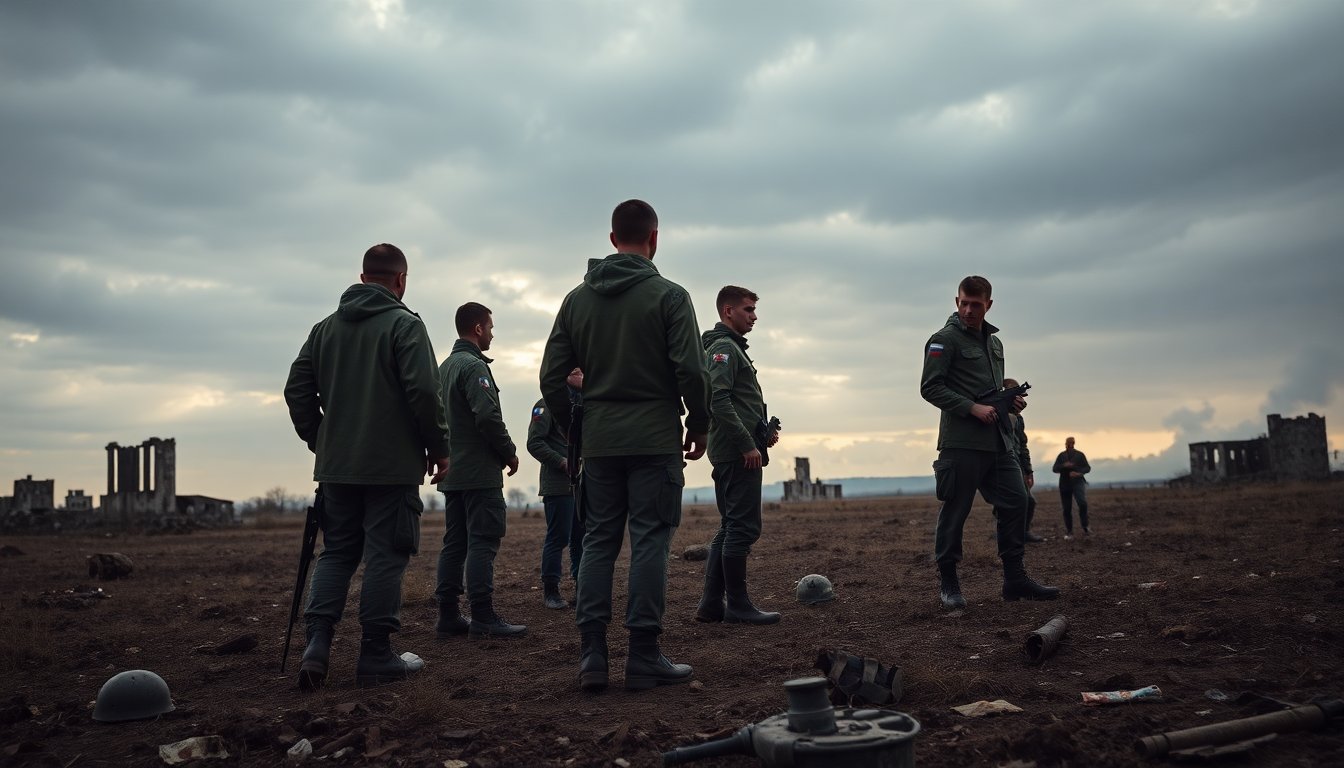Table of Contents
A troubling trend has emerged in Russia, where many orphans have found themselves on the front lines of the conflict in Ukraine. Motivated by the promises of housing that they have long awaited, these young individuals are enlisting in the military. While official casualty figures remain undisclosed, reports indicate that at least 190 former orphans have lost their lives in the fighting. This article explores the factors leading these vulnerable youths to enlist, drawing from investigative reporting by RFE/RL’s Sibir.Realii.
The case of Danil Trubeyev
One poignant example is the story of Danil Trubeyev, a young man from Miass in the Chelyabinsk region. His life was tragically cut short at the age of 20 while serving in Ukraine. Danil had been captured in October and returned to his unit during a prisoner exchange in April. Unfortunately, his commanders denied him leave, leading to a tragic fate. His relatives and teachers attribute his decision to enlist mainly to his status as an orphan, highlighting the unique challenges faced by individuals in similar situations.
Placed in an orphanage after his mother’s death and his father’s refusal to care for him, Danil’s life was marred by instability from an early age. His relatives remember him as a gentle child, ultimately left to navigate the world alone. His naivete was evident in his decision-making; he once fell victim to a scam that left him homeless. Despite graduating from a vocational school with skills in car repair, he struggled to find employment. The allure of a promised job as a mechanic in the military led him to believe he would serve safely in a rear position and secure housing.
The grim allure of military service
By October, Danil was deployed as an assault trooper to the Toretsk front, where he was captured again. Despite promising his family he would never return to the battlefield, circumstances led to his death during an assault in August. His burial was a lonely affair, attended only by a few classmates and relatives, reflecting the isolation often felt by those from orphanages.
In these institutions, the atmosphere is steeped in propaganda. Recruitment officers frequently enter, promoting military service with misleading claims of glory and stability. Youths, often deprived of critical thinking skills and bombarded with promises of quick solutions, become vulnerable to manipulation. One former teacher described it as a cycle of hopelessness, where orphans cling to the idea that signing a contract could finally secure them a place in the housing queue.
Government policies and their consequences
In June, the Russian government implemented a policy granting orphans who enlist in the military priority access to state-provided housing. This initiative has attracted many vulnerable youths into contracts under the false pretense of immediate accommodations. However, the grim reality is that few survive long enough to claim the promised benefits, leaving their families and dependents in uncertainty.
Despite the absence of official casualty figures, employees at orphanages report that thousands of former wards have perished in the conflict, with many more currently serving on the front lines. The emotional toll on these institutions is profound; staff often learn about their former students’ enlistment by chance, leading to feelings of helplessness regarding their fate.
The social impact of military enlistment
Social media posts from orphanages reflect the increasing trend of enlistment among graduates. Some facilities maintain memorials for those who have died while serving, while others share updates on alumni currently engaged in the conflict. Peer influence plays a significant role in these decisions, as many young people feel pressured to enlist after witnessing friends do the same. The lack of viable alternatives for housing or employment further exacerbates the situation.
Even before the war’s escalation, various government agencies actively recruited orphans for military careers, portraying them as a path to stability. However, this so-called stability often serves as a façade, masking systemic failures within the housing system, where countless graduates remain on waiting lists for accommodations. Available housing is frequently inadequate, lacking basic utilities.
A call for justice
The inequity of prioritizing orphans who enlist for housing has sparked outrage among many, including those who have experienced the orphanage system. Many express frustration over the disparity between the treatment of military personnel and the neglect faced by ordinary citizens. The government’s failure to address the underlying issues of housing insecurity for orphans raises urgent questions about the ethics of exploiting vulnerable populations for military gain.
One poignant example is the story of Danil Trubeyev, a young man from Miass in the Chelyabinsk region. His life was tragically cut short at the age of 20 while serving in Ukraine. Danil had been captured in October and returned to his unit during a prisoner exchange in April. Unfortunately, his commanders denied him leave, leading to a tragic fate. His relatives and teachers attribute his decision to enlist mainly to his status as an orphan, highlighting the unique challenges faced by individuals in similar situations.0


